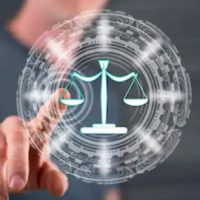Meet Dimethylpentylone, Florida’s Newest Designer Drug

The idea of designer drugs is nothing new, but drugs come and go from the drug supply so quickly that to trace their prevalence in South Florida from the time of the 60s counterculture through the disco age, the “Just Say No” era, the heyday of shady strip mall pain clinics and the hideous aftermath of an opioid crisis they left in their wake, all the way through the social isolation of the pandemic and its aftermath in the form of financial long COVID would make for a fascinating oral history. There is no formal legal definition of a designer drug, but the term generally refers to synthetic, meaning lab-created, drugs that have a slightly different chemical structure from those of known recreational drugs but which produce similar effects. There are so many different types of designer drugs that neither the news media nor the Drug Enforcement Administration (DEA) can keep track of all of them. Some street drugs are so widely imitated in labs around the world that the federal government or the states make laws criminalizing all designer drugs within a certain degree of similarity to the controlled substance they aim to approximate. Here, our Miami drug crimes defense lawyer explains the rise and dangers of dimethylpentylone, a newly synthesized synthetic cathinone that has become prevalent in South Florida’s drug supply in the past few months.
Is Dimethylpentylone Just Another Synthetic Cathinone?
Cathinone is a central nervous system stimulant that occurs naturally in the leaves of the Catha edulis plant, which grows in Yemen and East Africa. In the plant’s native range, people chew the leaves, which are known as khat, for their stimulant effects. Any synthetic drug modeled on the chemical structure of cathinone and synthesized for its stimulant properties is a synthetic cathinone. In the 1990s, it was easy to find capsules containing synthetic cathinones behind the cash registers of gas stations; they were usually marketed as “natural energy pills” or similar. When sold online, they tend to go by euphemistic names such as “bath salts.” In other words, in the old days, they slipped through the loophole of not being categorized as illegal drugs because they were dietary supplements, the health value of which had not been evaluated by the FDA. In the Internet age, people sell them under the pretense that they are not for human consumption.
Altered Molly Makes Its Debut in Florida
Dimethylpentylone, which also goes by other variations of its chemical name, was first synthesized in Sweden in 2014, in contrast to some other synthetic cathinones, which have been around for decades. Law enforcement first detected dimethylpentylone in the drug supply in the United States in 2021, but 2023 seems to be the year that it made its big debut, as law enforcement agents in several parts of the country confiscated sizable quantities of the drug. In the summer of 2023, a package of vacuum sealed bags labeled “beauty products” traveled from China and arrived at Dulles airport in Virginia, where federal agents confiscated them; the package was addressed to a buyer in Washington, D.C.
Police in the Jacksonville area say that the drug is often sold at nightclubs and bars. It is usually marketed as MDMA, giving rise to its nickname “altered molly.” Martin County Sheriff’s deputies say that the drug is ubiquitous in the Stuart area; two men were recently arrested at a traffic stop outside a gas station in Stuart and charged with transporting dimethylpentylone.
How Did Such a New Drug Already Become a Schedule I Controlled Substance?
Despite arriving on planet Earth more recently than the COVID-19 virus, dimethylpentylone is already a Schedule I controlled substance, which means that it is even more illegal than cocaine and fentanyl. Schedule I controlled substances are street drugs that do not have any legally recognized medical uses. Altered molly has become a Schedule I controlled substance by association; the drug has not been specifically scheduled, but the fact that it is a synthetic cathinone puts it in the same legal category as other synthetic cathinones.
Dimethylpentylone has attracted attention from law enforcement because of its role in overdoses. In most dimethylpentylone-related overdose deaths, the cause of death is hyperthermia, meaning high body temperature. Most overdose victims who tested positive for dimethylpentylone also tested positive for other drugs. The greatest danger of dimethylpentylone is its presence in drug mixtures of unknown composition.
Contact Our Criminal Defense Attorneys
A South Florida criminal defense lawyer can help you if you are facing criminal charges related to synthetic cathinones. Contact Ratzan & Faccidomo in Miami, Florida for a free, confidential consultation about your case.
Sources:
cbs12.com/news/addicted-florida/martin-county-deputies-see-an-increase-in-street-drug-altered-molly-dimethylplentylone-martin-county-sheriffs-office-florida-october-27-2023
news4jax.com/news/local/2023/07/11/newest-drug-to-hits-the-streets-makes-its-way-to-northeast-florida-nightclubs-bars/


